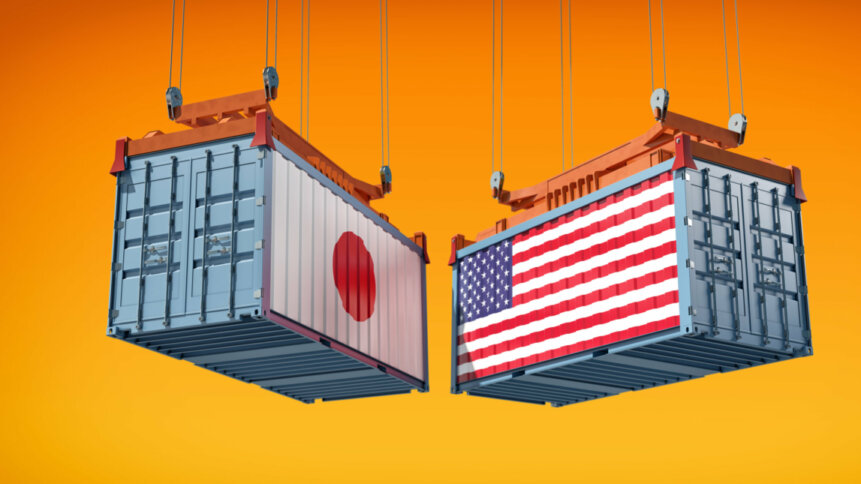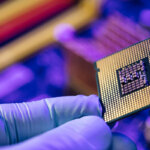Japan gets into bed with US in chip row

|
Getting your Trinity Audio player ready...
|
- Japan will slow semiconductor exports to China.
- New regulations prove commitment to US aims in chip battle against China.
Japan has proven its allegiance in the semiconductor battle. On July 23, Japan strengthened its chip export regulations, per US requests. Part of the ongoing effort to block China from manufacturing cutting-edge semiconductor products, the new regulations relate to a specific step in the process of chip manufacturing.
The Japanese industry will have to approve exports of the 23 items used in film deposition – the process of forming thin film coatings on substrate material – lithographic exposure and other processes of semiconductor manufacturing.
This will slow down export procedures, in some cases making it impossible to export items altogether. The chip battle is being fought with red tape.
The strengthened regulations won’t cover exports of equipment for manufacturing conventional semiconductor products, such as those used in electrical appliances and automobiles.
According to trade statistics released by the Finance Ministry, in 2022 Japan exported over 4 trillion yen’s worth ($28 billion) of manufacturing equipment. China took more than a 30% share of this, making it the largest destination of Japan’s exports.
Although the Japanese government hasn’t identified the manufacturers of equipment items covered by the strengthened regulations, a senior ministry official indicated that about 10 or so companies, including Tokyo Electron Ltd., Nikon Corp. and Hitachi High-Tech Corp., would be affected.
To ensure that other countries can cut through the imposed red tape, comprehensive approval will be granted for exports to 42 countries and regions, including the United States, South Korea and Taiwan.
Japan enters ongoing semiconductor war
Back in October, the US government restricted exports of manufacturing equipment and provision of technology to China for cutting-edge semiconductor products that could be used in military applications.
As the restrictions have become more punitive, the United States has called for Japan and the Netherlands to make concerted efforts to enforce similar restrictions. Both countries are home to companies that hold large market shares in semiconductor manufacturing equipment.
Tokyo has followed Washington’s lead – but, according to industry minister Yasutoshi Nishimura, the strengthened regulations don’t target a specific country.
This September, the Netherlands will introduce new export regulations on semiconductor manufacturing equipment.
Naturally, China has criticized the moves that the US and other countries have made, calling their efforts attempts to split the supply chain in the semiconductor industry. In December, Beijing filed a complaint against Washington’s policy with the World Trade Organization.
In retaliation, China announced plans to regulate exports of gallium and germanium on July 3. The rare metals are used in the manufacture of some advanced semiconductor products and will be restricted from August this year.
The moves by all parties are thinly-disguised manoeuvres in a trade war that impacts the nervous system of modern economies: the silicon that powers commerce and everyday life.









